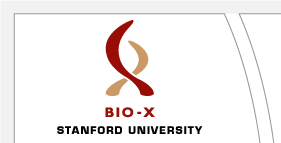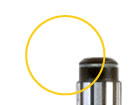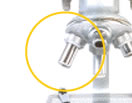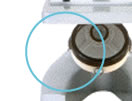Wound Management with Intelligent Materials
Curtis Frank (Chemical Engineering)
Jennifer Cochran (Bioengineering)
George Yang (Surgery)
Michael Longaker (Medicine)
Following injury, our bodies have evolved a complex program of biological and cellular events to control and repair damage. In many cases, especially in diabetics, the elderly, or others with complex medical problems, there is a deficiency in the ability to heal a wound. Treatment options for acute and chronic wounds are minimally effective and have not seen a significant technological development in decades. As such, the gold standard for wound care remains aggressive removal of devitalized tissue by a physician, followed by dressing changes three times a day using saline soaked gauze. To date, no one has successfully applied modern material science to the problem of wound healing. This innovative project will combine advanced biomaterials with engineered proteins create a bioengineered regenerative bandage to aid in wound healing. The end goal is an “intelligent” dressing that could be placed onto a wound site to: 1) create a protective barrier that permits wound closure and healing, 2) deliver biomolecules that promote wound healing, and 3) remove components from the wound site that impede healing. Such a dressing will help patients that are unable to fully heal a wound, and will also help normal patients heal a wound more rapidly. This interdisciplinary proposal combines three distinct areas of expertise from three different departments at Stanford to address this important biomedical problem.
|










